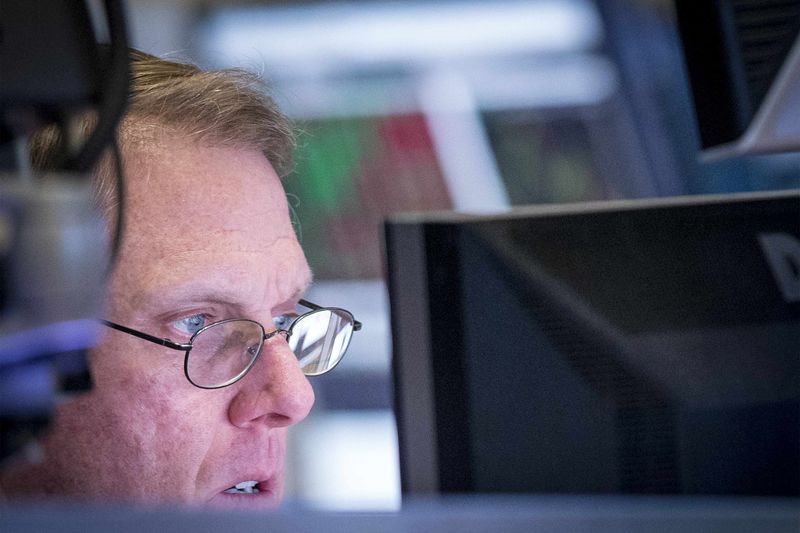Investors who had laughed off the trade war between China and the US just because their companies were not directly affected are not looking quite so smug these days. The impact of these two economic titans going at each other like a couple of Black Friday shoppers wielding handbags over the last half-price flat screen TV is causing ripples throughout the global economy. I’ve seen it show up in reports from companies as diverse as specialist engineer Renishaw, emerging market bank Standard Chartered (LON:STAN), and the global King of the Hill, the iPhone-maker Apple (NASDAQ:AAPL)). Even in the US – which prides itself on its huge and relatively self-sufficient domestic economy – the trade war is being blamed for slowing growth and the recent interest rate cut by the US Federal Reserve. The fact is no country stands alone in today’s integrated global economy – and very few companies will saunter on regardless of such upsets.
All at sea People are bad at assessing these second-order effects. To pick an example closer to home, we hear again and again in the debates about Brexit that a good reason for leaving the European Union is to regain control of our fisheries. As an island nation with a proud maritime tradition, this understandably strikes a chord with many of us. However a cursory look at the numbers shows that from a national economic perspective, the fisheries industry is more or less irrelevant. It’s roughly the same size as the turnover of High Street bike shop Halfords. The vast majority of our national wealth is generated in the services sector. In contrast the entire agricultural sector is only worth about 1% of national output. There may be cultural or political reasons why we want to support these sectors. But in terms of UK PLC, any touting of the benefits to fishing from Brexit might as well be balanced by a look at the impact on Halfords. It’s not even clear that taking control of our waters via Brexit would be beneficial for fishermen and women, if say the wider cost to the economy reduced demand for their produce or increased their expenses (perhaps by pushing up the cost of fuel because of a weaker pound) or if national tax receipts fell and so State support was curtailed in the typically less wealthy regions where fishing communities tend to be located. I’m not predicting this will – nor that it won’t. I’m just pointing out how looking at one factor in isolation seldom tells you the whole story.
Investing in everything Is there any point in trying to assess the prospects for individual companies, given the difficulty of deciding how what we read in the papers today will affect them tomorrow? One legitimate answer is “no”. You can argue that modern economies are so fiendishly complex that we’re fooling ourselves if we think we can predict how a trade spat here or a local slowdown there will eventually make itself felt in the turnover and profits of any individual company – let alone whether its share price already incorporates such information. The natural conclusion of such thinking is to invest using index funds. This way you capture the combined wisdom of all the world’s investors as they evaluate such factors, and at the cheapest price. Markets are mostly efficient, and when perhaps they’re not – such as at times of financial crisis – you have to ask why you should know better how that inefficiency is manifesting itself? At The Motley Fool we’ve always seen a great role for investing into index funds through thick and thin as a basis for personal wealth creation, for just these very reasons. However we also believe there’s another valid response, for those who are prepared to take a Foolish perspective to investing.
Long-term winners At the Fool, we believe some companies are inherently superior to others, whether that’s due to their products and services, their leadership culture, the patents they own, their brands that resonate, or a host of other intrinsic factors. What these advantages tend to have in common is they’re not really about an edge that a company will have over the next few months, or even the next few financial quarters. Rather they point to a competitive superiority that we believe will prove itself over the long-term, through all kinds of economic and political ups and downs. Make no mistake – such companies will be affected by a Trump tantrum, a no-deal Brexit, fears of a left-wing Labour government, resumed wobbles in the Eurozone, or any of the other myriad worries that come along as regular as Twitter panics. But if we select the right companies, we believe they will ultimately be less affected than their inferior rivals, or at least they’ll be better able to bounce back from such setbacks.
Pragmatic investing The bottom line is we believe you have to embrace uncertainty by either admitting your limitations and buying the whole market, or by accepting short-term pain for the potential of superior longer-term gains by judicious buy-and-hold stock-picking. But forget about guessing which shares will do best next month. Investing is hard enough as it is, without you setting yourself impossible goals!
The Motley Fool UK owns shares of and has recommended Apple. The Motley Fool UK has recommended Renishaw and Standard Chartered. Owain Bennallack owns shares of Standard Chartered.
Motley Fool UK 2019
